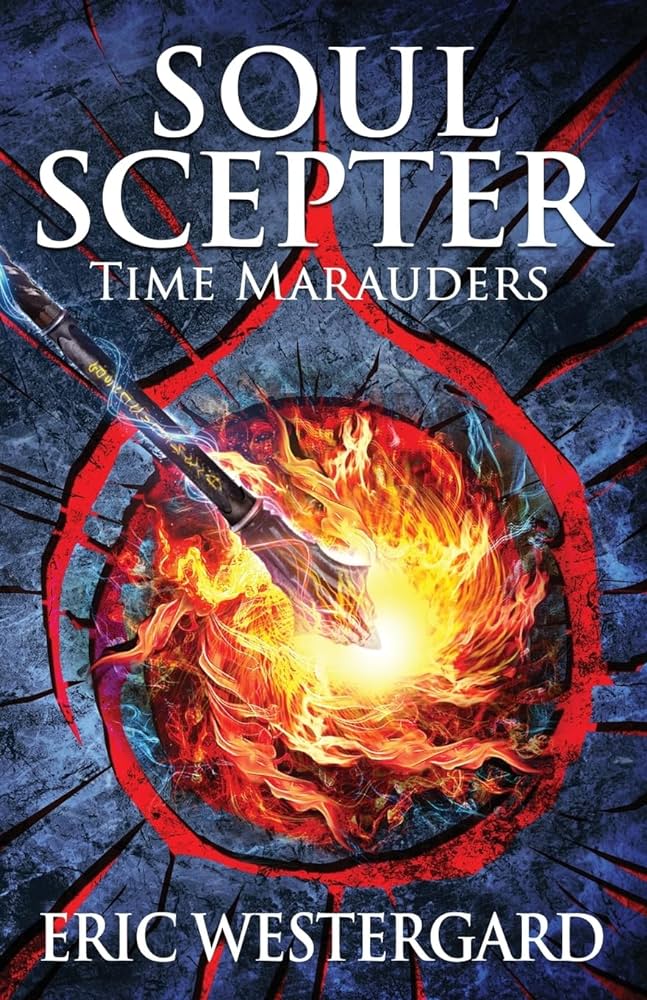I recently finished the novel Soul Scepter: Time Marauders by Eric Westergard, an author I met at the Reader’s Favorite Book Awards! This might be the best indie book I’ve read? At the very least, it’s the most cinematic. With a plot involving a bunch of teenagers abruptly transported back to the Middle Ages while pursued by a bunch of evil mercenaries with guns trying to steal the time travel device in their clutches for nefarious ends, it reminded me of the old Michael Crichton novel/movie Timeline. Here, not only do our heroes have to try to find a way to get back to the present, but they also have to stop the baddies from manufacturing a bunch of assault rifles and “breaking the future” by altering the course of human history for the worse.

A few relatively minor aspects of the book didn’t quite land for me. The opening scene, involving a band of terrorists taking on the literal President of the United States and his bodyguards only for their most fearsome member to be brained by a high school kid with a wrench strained credulity a bit far, and those opening action sequences me think in a less-than-optimal way about all those cheesy Gerald Butler-esque movies about saving the President. White House Has Fallen? Olympus Down? Something like that. There’s also the issue that lots and lots (and lots) of medieval folks do actually manage to get killed in the book, which you would think would have pretty dramatic ripples for the rest of history, given that this is the Back to the Future style of time ravel where changing the past also changes the future…it would sure be awkward if the main heroes got back to their own time only to find one of them no longer existed because they accidentally killed their great-great-grandfather, or something!
But once the characters actually make it to the Middle Ages, the book really picks up, culminating in a truly memorable battle sequence in the woods that felt straight out of a (good) old-fashioned Hollywood historical epic. That classic, swashbuckly, movie feel is present throughout, and in a fun way.
The characters—both modern and medieval—felt likable, distinct, and enjoyable, and I found myself genuinely caring what might befall them. The book’s greatest strength, though, might be its pacing. The scenes were fast-paced, to be sure, but not rushed, as I’ve seen in too many otherwise-good indie novels. Rather, the book takes time to let its many action set pieces—as well as the quieter, more personal confrontations between characters—breathe, allowing for real tension and suspense to build when it needs to. This is the biggest distinguishing factor between this book and a lot of the other indie novels I have read recently. It might sound like a small thing, but it really cannot be overstated: the book takes just enough time to make you care, but not so much that you ever get impatient. Besides the fights, some of the most fun scenes are the initial interactions between our time-flung heroes and their medieval counterparts, as they deal with the culture shock of being transported into the distant past (honestly, I wish there had been even more scenes like this than what we were given, and that this aspect of the story had been fleshed out even more).
You know it’s the hallmark of a good story when you’re a bit sad when it comes to an end. There’s more gold that could be mined from this premise of time travel to the Middle Ages…perhaps a whole series’ worth. Yet perhaps it’s for the best that the book decides to close out on a high note, rather than meandering on to an eyebrow-raising wordcount and overstaying its welcome (not to throw any shade at Outlander, but…). After all, there’s always room for more adventure in the sequel, though nothing suggests, alas, that it will be medieval-related. Perhaps our heroes will find themselves in a new period of history entirely? Only time will tell.